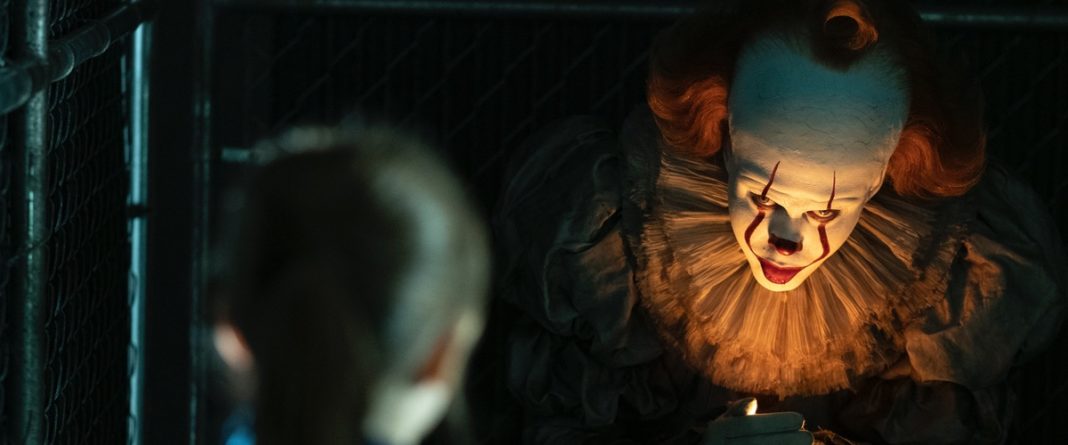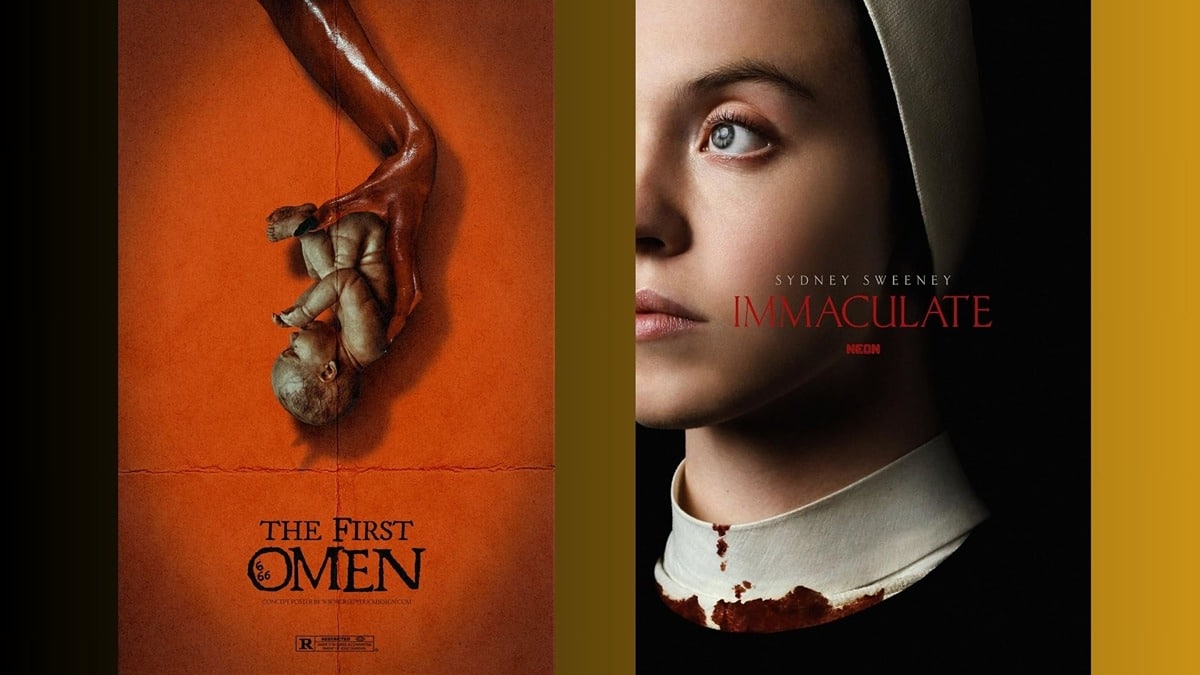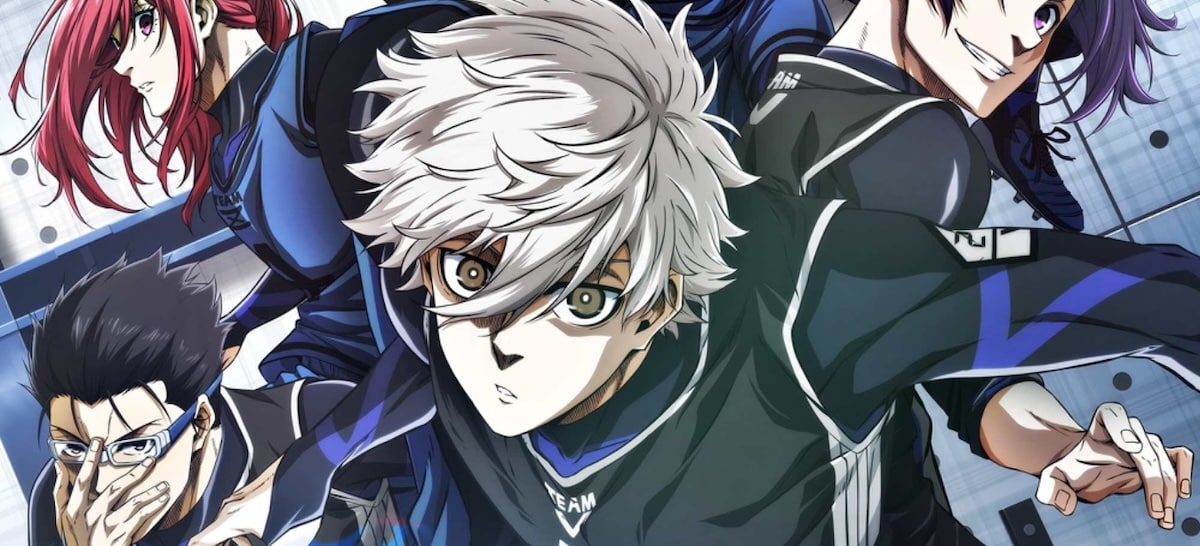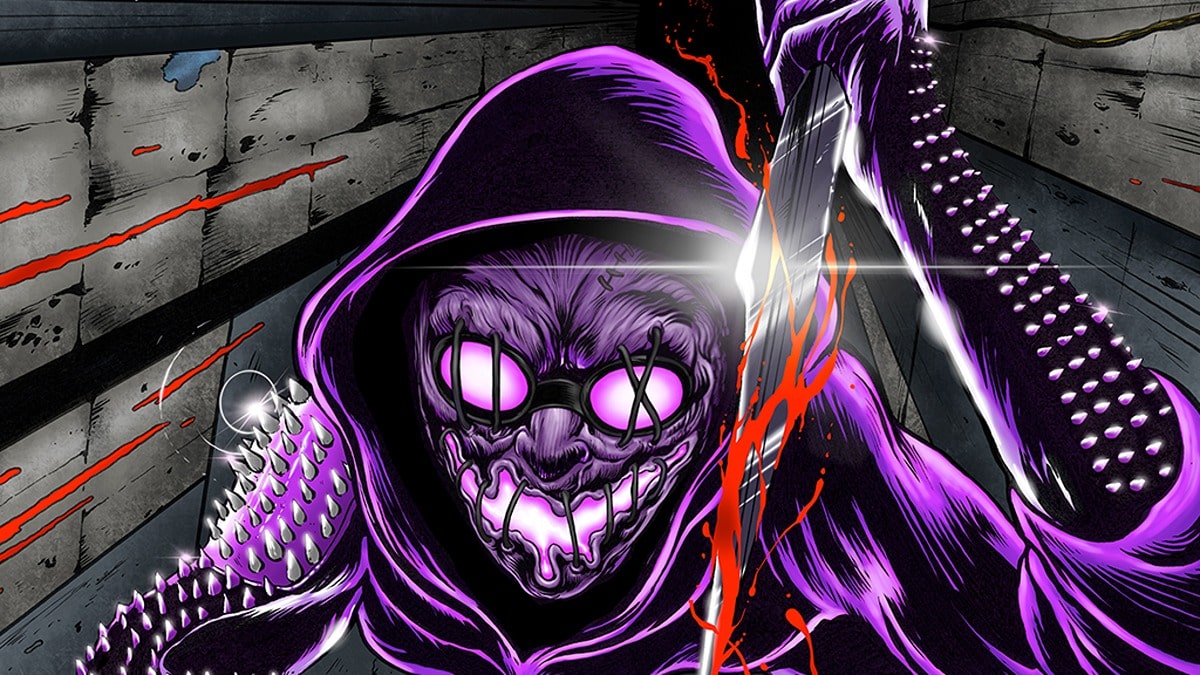For nearly five years, screenwriter Gary Dauberman has been the go-to guy for the horror spin-offs in the Conjuring-verse with three Annabelle movies under his belt—the third which he also directed—and writing 2018’s The Nun. In recent years, Dauberman has also become the go-to guy for adapting Stephen King after the success of 2017’s It, its sequel having opened with $91 million just this past weekend.
Dauberman is in the middle of adapting King’s vampire novel Salem’s Lot for a big screen treatment, but he took a short break last week to talk to The Beat for the sequel It: Chapter Two. The last time The Beat spoke to Dauberman for his directorial debut, Annabelle Comes Home, we didn’t quite get into the nitty gritty of It: Chapter Two, but this time, we talked about some specifics, so we’ll issue a MILD SPOILER WARNING here, since we do talk about some of the plot details in the movie.
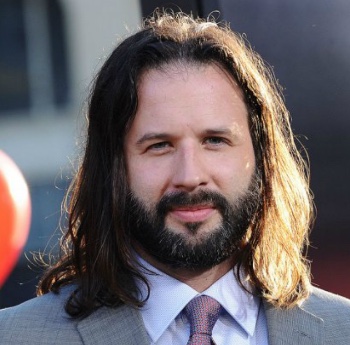
THE BEAT: First of all, I know that Cary Fukunaga was developing these movies originally before Andy Muschietti got involved. You were working from a screenplay he had been developing at least on Chapter One, but this one you started from scratch, or had you written some of this already while they were shooting Chapter One?
GARY DAUBERMAN: No, I came on board the first one the same time Andy did, and even there, we went back to the drawing board a bit, just because we wanted to get back to the book, and on this one, I started from scratch, picking up the story from the adult’s side of the story.
THE BEAT: There is some stuff with the kids in Chapter Two, but I wasn’t sure if Andy was able to shoot any of that while when he was shooting the first movie. Had the second part already been greenlit at that point?
DAUBERMAN: No, the stuff you see with the kids in this movie, we shot new for this movie. When we were doing “Chapter One,” the whole [idea] is that you get to do “Chapter Two,” but you never know. We had a good feeling we were making something special, but still, you never know. Because it’s such an organic separation between the chapters – one’s the kid’s story and one’s the adult story. It didn’t feel like we were saving anything either, like, “Let’s save that for Chapter Two.” We were able to put everything we had into “Chapter One” and then knowing that we had the adult side of the story to tell 27 years later.
THE BEAT: When did you actually start writing “Chapter Two”? Were you writing any of it while they were filming the first movie?
DAUBERMAN: No, because you’re still working on production and stuff. I would say. Maybe I was writing a little bit before the first one came out or thereabouts. Yeah, I don’t know the exact, but somewhere around there.
THE BEAT: I had been curious if you had some sort of breakdown of where things will go for most of the cast. Obviously, you have the book, but when you said you weren’t saving anything for “Chapter Two,” you kind of have to save stuff for it since that’s part of the narrative.
DAUBERMAN: I mean, in terms of the kid’s story and all that stuff. Obviously, stuff is saved for “Chapter Two” but we didn’t consciously go… there wasn’t an idea we had where we’d go, “Well, no, let’s save that… “ if that makes sense, because there’s such a clear delineation between the two stories. We were able to tell the kid’s story in the fullest way possible to make it feel as if it’s its own complete story, but yet, the story still goes on 27 years later. I think both movies work on their own, as movies, but then of course, you get a better sense of completion when you’ve seen both of them.
THE BEAT: Stephen King’s novel, I think at least some people feel that the adult section is a tougher part, and even in the 1990 adaptation, that was the part that didn’t work as well, even though it was integrated more. Knowing that you were dealing with the tougher part of the story as a standalone, was that more of a challenge? Or did you feel that you had a pretty solid handle on the characters by then?
DAUBERMAN: It’s certainly a challenge. I don’t know about comparing it to one or the other. I think the adult stuff, in the book, there’s a lot more metaphysical things that come up. There were definitely conversations and me racking my brains on how we’re going to tell this in a visual manner that’s going to make sense on the screen and make it cinematic, because it does get wild there at the end, in a great way, but it feels a little more literary than cinematic. Each chapter presented its own unique challenges and for the second one, “Chapter Two,” the unique challenges had to do a lot with talking about the origins of IT and the rituals of CHÜD, and sort of that third act climax were the biggest challenges, from a narrative standpoint.
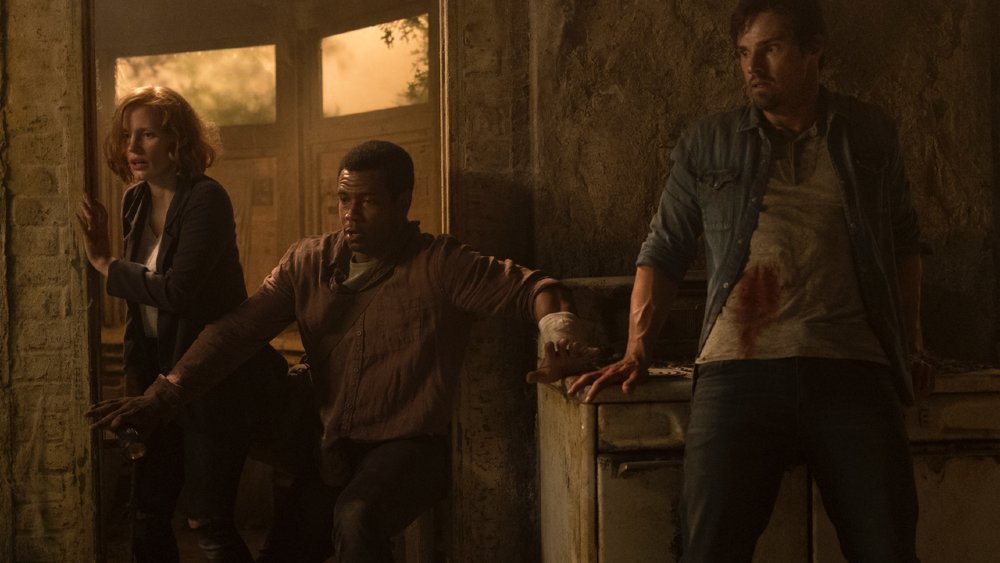
THE BEAT: For this movie, you’re also working with a lot more established actors, including Bill Hader, who is an amazing writer himself, plus you were off making your own movie at the same time. As actors were brought on, how did you balance working on the script with them and directing your own movie?
DAUBERMAN: You adjust, but fortunately, you’re in the hands of a great filmmaker in Andy and Barbara Muschietti. Sure, everyone comes with their own ideas, and you tweak and you do all that, but when you have someone like Hader with the jokes and the improv, there’s so many takes of different one-liners thrown out there and what’s going to work? I think that was a fun part of the process, too, seeing the stuff that would just come off the top of his head when you’re looking at the dailies.
THE BEAT: Were you able to be on-set for some or all of the shooting?
DAUBERMAN: No, I was off doing [Annabelle]… even [during] the first one, because you’re kind of remote, but I was on prep on Annabelle Comes Home, but everything’s pretty locked once you get into production, especially on a big movie like this.
THE BEAT: One of the benefits of writing most of this after the first movie came out, I imagine, is that you know the first movie did well enough that Andy will have a bigger budget for the special FX that are involved, especially in the second half of the second movie. I know when you’re writing, you can’t think about budget, but was it a little bit of a relief that you could write some crazier stuff that Andy would be able to do? I’m always curious about the idea of whether you can or should think about budget while writing or not, especially when you’re not directing.
DAUBERMAN: It’s interesting. When I’m writing smaller movies, like the Annabelles, you do have to think a little about, “Oh, I’m never going to be able to do that,” but you’re not self-editing in that way, because you’re kind of conditioned to think, “Well, I’m in house…” and you try to just tell the best story you can, then you get the budget out, and reality sets in. And the same thing works on this. There wasn’t ever a time where I was like, “Now, we really get to go guns blazing on the stuff we weren’t able to do.” From a filmmaker’s standpoint, you certainly get more toys to play with, I think, when you get the bigger budget. I think from a writer, for me you’re playing with the same toys you were playing with anyway. Honestly, I’m thinking about my budget if it’s a pen and paper or it’s a computer and a copy of Final Draft. That’s honestly the budget I’m considering when you’re writing this thing, or how much coffee am I going to drink today? I think when you come on board as a filmmaker, then you really start to think, “Oh, I can push this” or “Maybe I could only have a crane so many days on the first movie – now I get to have it a couple more days.” You sort of get to explore and really push the boundaries in terms of your filmmaking skills, too, when you’re talking about a bigger budget. From a writer’s standpoint, honestly, working on smaller movies, I have a sense of what things cost and all that stuff, but I will never not write a scene, because I go, “Well, I’ll never gonna be able to afford that.” I’d much rather write the scene, and everyone work together and try to make a way to afford it, but I’m not going to sit there, “Well, no, that’s a great idea but I’m not going to put it in because we’ll never be able to afford it.”
THE BEAT: Cranes? I thought they just used drones for all those shots now.
DAUBERMAN: (laughter) Yeah, there are a lot of drone units, yeah…
THE BEAT: Bill’s wife and Bev’s husband play a larger part in the book and the previous adaptation in terms of their narrative about returning to Derry. They only appear briefly in your movie, so was there more of them that had to be cut out to get back to Derry quicker?
DAUBERMAN: In the early stages, there was more of that. I’m so beholden to the book and the source material, but it does get to a sense of something’s gotta give. The movie is at the length it is now, which I think is the right length for it, but you add those into the mix, and suddenly, it gets that much longer. We tried a bunch of different ways to have these things. You also don’t want to include it, just to include it. You want it to really hit if you’re going to put it in there, so yeah, I think there were ways we could have jammed it in, but that just feels cheap and not so great either. I think we went with the best decision to really just hone it down to our core group, and I think that includes Henry, too. You certainly start to add more characters, and you have to take away from some, too. Henry was starting to feel a little much, so I think we made the right call there.
THE BEAT: When you watch this movie, you realize that Stephen King has his themes that he’s included in most of his work, including small towns and bullying is another one. I completely forgot that Henry was around in the adult part of the story. I forgot about him since I thought he died in the first movie. Can you talk about maintaining some of those themes?
DAUBERMAN: I think a lot of these things… I think that’s why these books have the longevity that they have. They’re evergreen, because a lot of the themes that King works with are evergreen, too. As you said, the bullying, and you never have friends like you did when you were twelve, the first love and friendship you had when you were a kid. All those things that he explores in his books or a lot of his books are true whether it was the ‘50s or the ‘60s or the ‘90s or today. I think, again, that’s why there’s such a staying power there. That’s the stuff I latch onto when I read his books and the stuff I preserved when I approached the material and start to adapt it.
THE BEAT: There are rumors that Andy wants to cut together an ultimate version of the story. I’m not sure if it’s the best parts of the two movies or just a long extended cut of the two movies together. Are you involved with that at all?
DAUBERMAN: No, no, I don’t know anything about that. Yeah, that feels like a natural, cool thing to do. It was something that we just thought would be cool in order to think about how this stuff would weave together. It was a thought in the back of our heads, as I was writing, but I don’t know the when, how, where, anything like that, other than I’ll be the first in line to see it.
THE BEAT: I was curious about that, because in “Chapter 2” you have flashbacks that I don’t think were in the book or the previous movie, where it cut between them.
DAUBERMAN: The clubhouse?
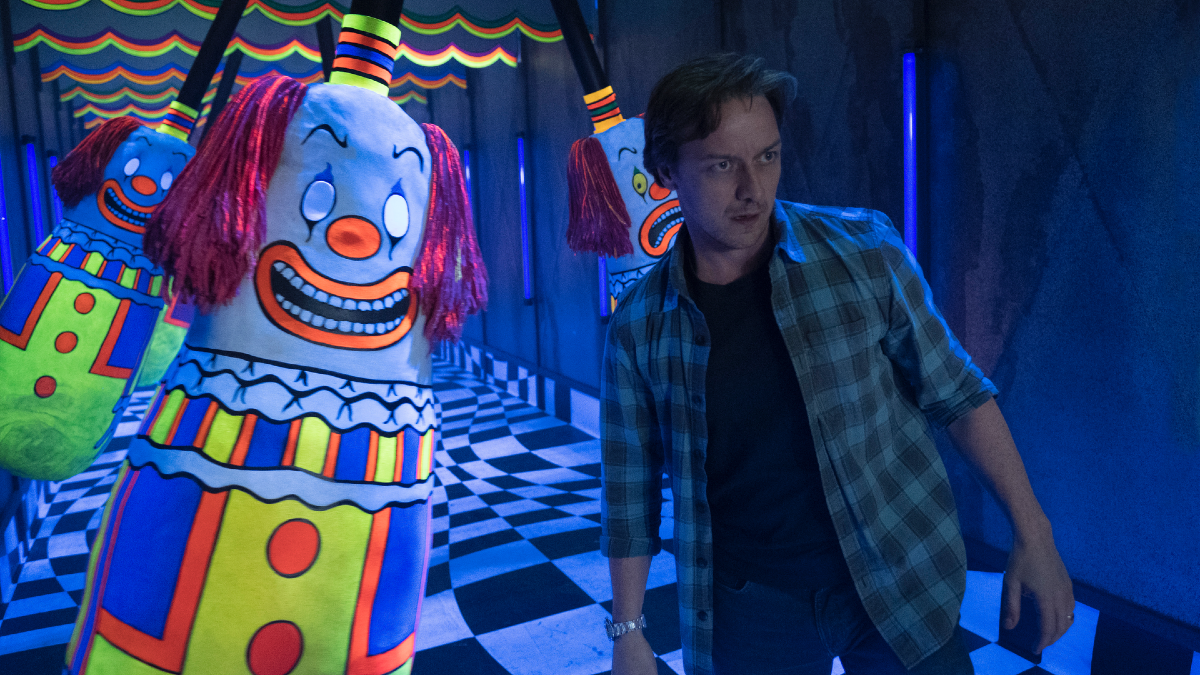
THE BEAT: Yeah, the clubhouse scenes for sure, but also when they were off on their own, and it flashes back to when they were on their own as kids that we didn’t see in the first movie. Was that all written specifically for this movie to keep the connection to the kids in this movie?
DAUBERMAN: Yeah, I was trying to figure out… such a big part of the adult story is them trying to remember their youth, and that’s such an internal thing – memory – and that’s one of the first things we knew going in was that we had to bring the kids back, because how else are we going to show them actually remembering what it was like to be in Derry back in 1989. We knew that we were going to have these little glimpses of their youth. Otherwise, it’s just someone saying, “I remember,” or “I remember, too,” which is not all that cinematic.
THE BEAT: Or cutting in a scene from the first movie… “Remember this from that movie two years ago?”
DAUBERMAN: (laughs) Yeah, yeah, right. Again, it’s united we stand, divided we fall kind of thing. I really latched onto that moment where they’re all separated after the fight, and that’s when they were the most vulnerable to Pennywise. It felt like that’s an organic place to show these glimpses of when they were alone and when they were threatened by Pennywise. That just felt like a natural way to show that they were remembering, I guess, rather than tell it.
THE BEAT: I think one of the biggest spoilers is how to handle Stanley’s situation. Obviously, if they’ve read the book, they know what happens to him, but it’s pretty shocking if you haven’t read it, but there are a lot of references and callbacks to him. How did you decide on how to handle that situation?
DAUBERMAN: I guess even in death, the people close to us are still part of us, and I think that’s what Stan represents. Even in death, it doesn’t meant that the losers can’t be together again. I think they need that reunion, and keeping his memory alive or talking about him or reflecting upon him is a way to keep him alive or what they need to do at the end. He was such big part of their youth and their childhood and that summer, so of course, they’re going to talk about him. But to me, that’s one of the most iconic scenes in the book is that bathtub and Stanley not wanting to go back. It was important to keep his memory alive, because again, it’s about recapturing their youth, and Stanley is such a big part of that.
THE BEAT: The other thing that you kind of touch upon in the movie is Richie’s sexuality, which there are hints to it constantly, but at one point, I thought maybe he had a crush on Stanley but then at the end, we find out that’s not the case. Was that something you didn’t feel you need to fully spell out and explain?
DAUBERMAN: I don’t think we needed to deal with it up-front. It always felt organic. Andy and I talked about it, and Barbara and the studio, but it just felt kind of natural, and it didn’t feel like anything we needed to throw a huge spotlight on or anything like that. It just felt like that’s part of his story, so we’re going to tell it, but it never was a big revelation to us or anything like that. I think Andy and Bill handled it beautifully. I loved that part.
THE BEAT: I was curious because there was a flashback to Richie watching Stanley do his Haftorah at his Bar Mitzvah…
DAUBERMAN: That was just about him remembering him and listening to what he was saying and being reminded again that “I’ve gone through so many years of my life, and these are the friends that mean something to me.” It’s the thing that sparks him to return to the Losers.
THE BEAT: The last time we spoke, Annabelle Comes Home hadn’t come out yet, and we had no idea how it was going to do. I guess it did okay, so have you had any talks with New Line or James [Wan] about doing more or where to go next?
DAUBERMAN: No, all that stuff comes up when it comes up. I think it did fine. It was a noisy summer, but I’m super proud of it, but right now, I’m writing Salem’s Lot.
THE BEAT: How has that been going? Is it easier to tackle that after writing It?
DAUBERMAN: No, every script feels like it’s a challenge. It doesn’t ever feel like it gets easier. (laughs)
It: Chapter 2 is now playing in theaters across the country.


